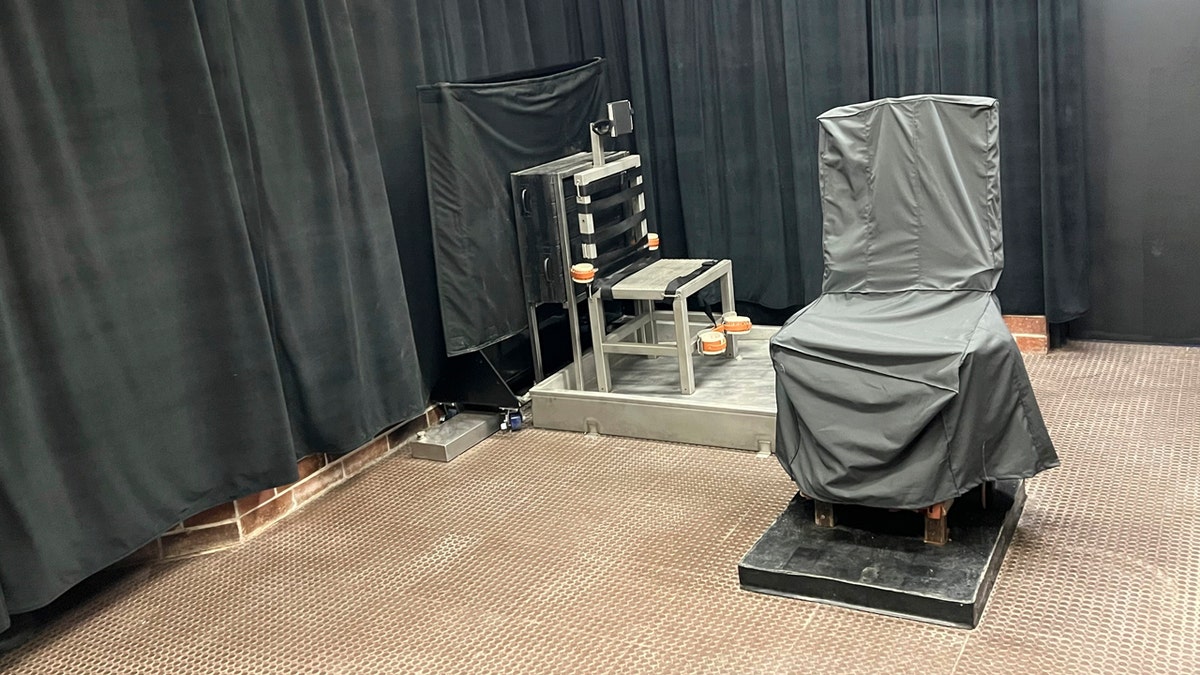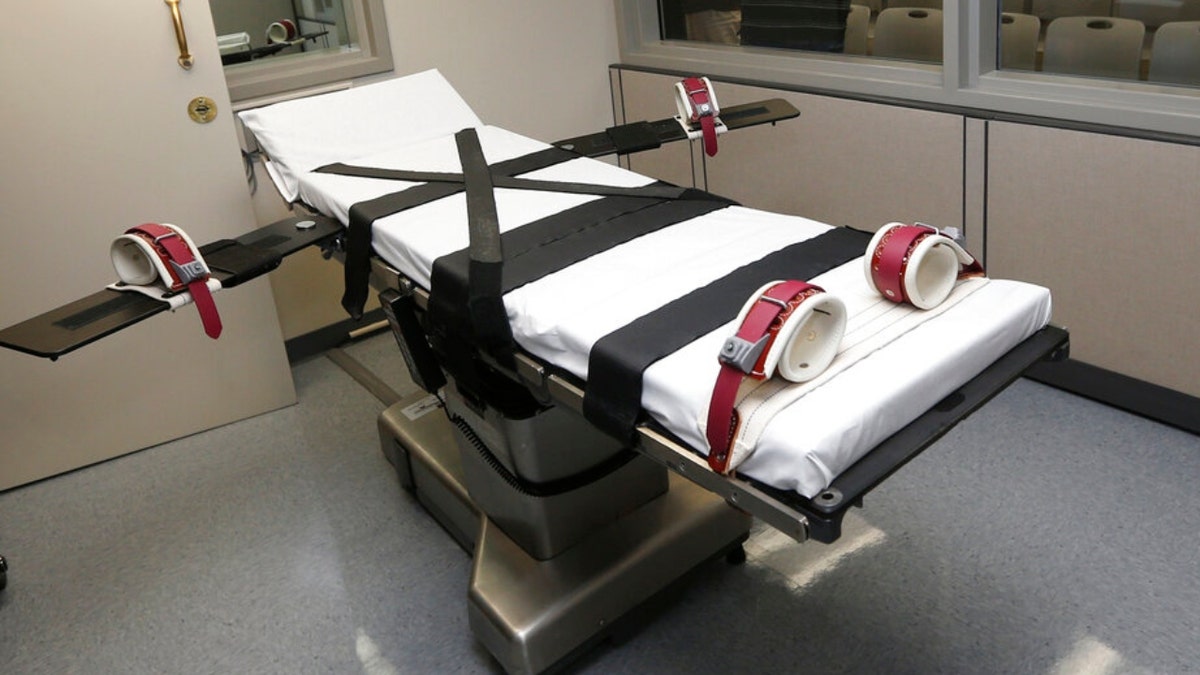A South Carolina The inmate, forced to choose his own method of execution, left the decision up to his attorney, who reluctantly selected lethal injection rather than the electric chair or firing squad.
Freddie Owens, 46, said in court documents that he could not choose his execution method because doing so would mean taking an active role in his own death and that he believes suicide is a sin, citing his Muslim religion. The Associated Press,
Owens is scheduled to be executed Sept. 20 for the killing of store clerk Irene Graves during a 1997 robbery in Greenville. It will be the first time an inmate will be put to death in South Carolina in more than 13 years. There had been an involuntary moratorium on executions in recent years because of a struggle to obtain lethal injections.
His lawyer, attorney Emily Paavola, sent forms to prison officials on Friday telling them to prepare to execute Owens by lethal injection. She also released a statement saying she was not sure whether prison officials had released enough information about the drug used in the method to ensure it would kill him without causing unbearable pain or suffering, which could rise to the level of cruel and unusual punishment.
South Carolina death row inmate seeks delay in execution, says co-defendant lied about plea deal
Freddie Owens, 46, said he could not choose his method of execution because it was against his Muslim religion to take an active role in his death. (South Carolina Department of Corrections, via AP)
“I have known Mr. Owens for over 15 years,” she wrote. “Given the circumstances, and the information I currently have, I have made the best decision for him. I am hopeful that the South Carolina Department of Corrections’ assurances will prove true.”
Had Paavola not made the decision, state law required Owens to be executed in the electric chair, and he said he did not want to die that way.
South Carolina, once one of the busiest states for executions, has not carried out an execution since 2011 after having trouble obtaining lethal injection drugs in recent years because pharmaceutical companies worried they would have to disclose to state authorities they sold the drugs.
But the state Legislature passed a shield law last year allowing officials to keep lethal injection drug suppliers private, and the state Supreme Court ruled that the electric chair and firing squad could also be used for executions.
South Carolina previously used a three-drug combination but will now use one drug, the sedative pentobarbital, for lethal injection, similar to the federal government’s protocol.
Owens is one of them Six prisoners who have exhausted their appeals to avoid execution. There are currently 32 inmates on death row in South Carolina.
Since his execution date was set two weeks ago, his attorneys have filed multiple legal motions seeking to delay his death, but no delay has yet been granted.
He had requested a delay in his execution so his attorneys could argue that his co-defendant lied about a plea deal to testify against Owens in exchange for avoiding the death penalty or life imprisonment. Co-defendant Steven Golden testified that Owens shot Graves in the head because she was unable to open the safe at the Greenville store 27 years ago.
“My written plea agreement stated that the death penalty and life imprisonment were still possible outcomes and that there was no specific guarantee as to what my sentence would be,” Golden wrote in an affidavit last month. “This was not true. We had a verbal agreement that I would not receive the death penalty or life imprisonment.”
South Carolina’s first execution in more than 13 years is scheduled for next month

If his attorney had not made a decision, state law required Owens to be executed in the electric chair, and he said he did not want to die that way. (South Carolina Department of Corrections via AP, File)
Golden was sentenced to 28 years in prison pleading guilty He was charged with a lesser count of voluntary manslaughter, court records show.
There was surveillance video in the store, but it did not clearly show the shooting. Prosecutors never found the weapon used in the shooting and were unable to produce any scientific evidence linking Owens to the killing.
Prosecutors said the co-defendant’s testimony was supported by confessions Owens made to his mother, girlfriend and investigators.
State attorneys said Owens lied about the plea deal and whether jurors might have been biased against Owens because they saw an electronic stun device Owens wore during the trial. These concerns have been addressed in multiple appeals and two additional sentencing hearings, including one that recommended the death penalty after other judges overturned his initial conviction.
“Owens has had ample opportunity to litigate claims regarding his conviction and sentence. He will no longer have that chance,” the South Carolina Attorney General’s Office wrote in a court filing.
Owens’ attorneys also are seeking to have his death sentence tossed out, at least temporarily, because he was just 19 at the time of the crime and scans show his brain wasn’t fully developed. The attorneys also said the jury was never asked to determine whether Owens killed the clerk alone and argued his sentence is too harsh because fewer than 1% of murder cases resulting from armed robbery result in the death penalty.
He also sought to delay his execution, arguing that the state did not release enough information about the drug used for the lethal injection.
The state Supreme Court upheld the new shield law, ruling that prison officials must provide a sworn statement proving the pentobarbital set used in the state’s new lethal injection method is stable, pure and potent enough to kill an inmate.
Corrections Director Bryan Sterling said technicians from the state Law Enforcement Division laboratory tested two vials of the sedative drug and were convinced the drug was adequate, but he released no other details.

Owens is scheduled to be executed Sept. 20 for the killing of store clerk Irene Graves during a 1997 robbery in Greenville. ((AP Photo/Sue Ogrocki, File))
Click here to get the Fox News app
Owens’ attorneys sought more information, including a full lab report, the expiration date of the potentially mixed drug and information about how it would be stored, citing a photo of a 2015 hanging in Georgia of a drug syringe that had crystallized because it was stored at too cold a temperature.
The South Carolina Supreme Court ruled Thursday that prison officials had released enough information.
The only way Owens could avoid execution at this point is for the governor to grant him clemency and commute his death sentence to life in prison. But none of the 43 executions in the state since the death penalty was resumed in the U.S. in 1976 has been done by a governor.
Republican Gov. Henry McMaster has said he will follow longstanding tradition and not announce his decision until a call from prison officials from the death chamber moments before the execution is to take place.
The Associated Press contributed to this report.

















